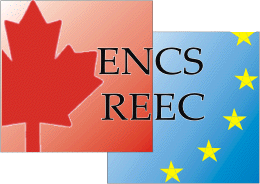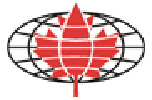Special meeting of the CESCCS (Bratislava, 19 May 2001)
- Written by Super User
Central European Steering Committee for Canadian Studies
Special Meeting of the CESCCS
Bratislava, Slovakia
19 May 2001
Report
Participants
Monica Bottez (Romania) [MB]
Maria Huttova (Slovakia) [MH]
Katalin Kurtosi (Hungary) [KK]
Aleksander Kustec (Slovenia) (AK]
Don Sparling (Czech Republic) [DS]
This meeting was originally intended to involve solely the members of the editorial board of the Central European Journal for Canadian Studies. The only member unable to attend was Josef Kwaterko. However, in view of recent developments in the region, as well as questions relating to the conference in Bucharest in October, DS decided that a short Steering Committee meeting should be held before the editorial board meeting. Since this was not one of the two regular meetings each year, he did not circulate an agenda in advance, and the subjects dealt with would include only those of pressing interest.
1. Opening
The meeting, held at the Canadian Studies Centre at Komensky University, opened at 9.00 a.m.
2. Conference of the Polish Association
DS reported on the conference of the Association of Polish Canadianists, held in Torun 20-22 April 2001. It was a very successful event, well organized and with good participation from Polish and non-Polish Canadianists as well as the presence of Jean Labrie (DFAIT) and Karen Gould (ICCS).
At the conference, the Polish Association held its triennial general meeting. Two important points on the agenda were the election of a new executive (Ewa Welnic of Torun is the new President, replacing Anna Reczynska) and a discussion on possible future membership of the Polish Association in the ICCS and/or a Central European association of Canadiants. DS was invited to this part of the meeting to explain the situation in Central Europe and the idea of a Central European Association of Canadianists. After considerable discussion, the Polish Association voted in favour of a motion calling on its executive to seek membership in the ICCS (the most likely being associate membership). DS said that he had not had time for a full meeting with Ewa Welnic after this decision, but in the short conversation they did have she stressed that she hoped and would work for maximum cooperation between the Polish Association and the Steering Committee in the future. However, no details on what this cooperation might look like were discussed.
DS said that, though he was disappointed by the decision (like many other CE Canadianists, he had felt a single, strong CE association would have been better for all Canadianists in the region, the Poles included), he saw no reason why it would not be possible to work together in future pretty much along the lines that had been developed so far – that the Poles shared the same needs, and faced the same problems, as the other countries in Central Europe, and that their input would be valuable in developing new initiatives for the whole region (Poland included) – that a “common front” would ensure that proposals received maximum support in Ottawa.
For AK, the situation was more complex. It seemed impossible to him that the Poles could be both “in and out” of the CE network. Our primary task in the Steering Committee is to promote CS in the region as a whole, while the Poles have chosen to concentrate first of all on CS in Poland. While their imput would be valuable, he felt that any Polish representative at Steering Committee meetings should be there in the capacity of an observer.
KK was also unsure as to the position of the Poles, feeling that it could lead to a situation in which what might be seen as “double benefits” were created – for instance at Grainau, where a Pole might attend in his/her capacity as a Steering Committee member, while the Polish Association itself would be adequately represented on its own. AK also said that without a clear demarcation of some kind, Poland would have a shadowy kind of “special status” that could only lead to problems.
With regard to the exact position of any Polish representative at Steering Committee meetings, MH said she felt that until the Polish Association is accepted as an ICCS member (whether full or associate), a Polish representative should attend the Steering Committee meetings as a normal member, not an “observer”. AK disagreed, saying that the decision of the Polish Association to seek ICCS membership was a clear statement that they did not feel fully part of the network. DS pointed out (in his wishy-washy Canadian way) that the vews of both MH and AK were valid: he agreed that the Poles, having their own association and the aim of joining the ICCS, did have some interests that were not shared with other members of the network, but stressed that they still had many in common with the other countries, and that in the immediate future, as far as he knew, financing for many activities in CE as a whole (e.g. the Secretariat, attendance at Grainau, the CE journal, etc.) would still be distributed via the network. From this point of view, it would not make sense to think of the Polish representative as merely an observer. In any case, the distinction between full member of the Steering Committee and observer was more notional than real, since so far as he could remember the Steering Committee had never voted on any issue, but instead reached a consensus.
After further discussion, in which most of the above points were restated in different ways, the following decisions were taken.
a) That the Poles should be present at Steering Committee meetings as observers. DS would write to Ewa Welnic, asking her to clarify the issue of how the Polish Association sees future cooperation with the Network, financial issues included.
b) That DS should obtain information about the various programmes of the ICCS so as to make it clear exactly what the advantages of being a member (both associate and full) are.
c) That the Steering Committee should prepare a position paper concerning possible CE membership in the ICCS to be sent to all CE Canadianists (with the exception of those in Poland, though a copy would of course be sent to the Polish Association), with the aim of it being used as a basis for discussion at the conference in Bucharest; a 2-hour slot would be reserved there for this.
d) That SC members should try to determine more accurately the real numbers of Canadianists in their respective countries (it appears that the list on the Website is not complete).
3. Class set evaluations
Most of the SC members had sent in their evaluations of the applications. DS asked MH and AK to send theirs at the beginning of the next week, so that he could forward the final list to Nancy Hector in Ottawa (the original deadline had been May 15).
It was suggested that in the next round of applications, it should be stated explicitly that books should be listed in the order of priority (as is the case with library support grant applications).
DS reminded everyone that the Website now included various links to catalogues of Canadian books, as well as to the annual catalogue of Canadian Studies books put together by Canadian publishers. However, there was still a problem in getting access to information about books published by Quebec publishers.
4. Graduate student seminar
At the meeting in Grainau DS had distributed to various Steering Committee members the papers he had received by that time for evaluation. Most had sent in their evaluations and comments; he asked those who had not to send them promptly. He also distributed copies of a few additional papers (he had received them after the Grainau meeting) to KK and MH.
5. Conference in Bucharest
It was decided that Steering Committee members would arrive a day earlier – on Thursday 25 October – and stay in the university guest house in Bucharest. They would meet in Bucharest on Friday 26 October, and then move to the conference venue with the rest of the conference participants.
MB said that they were still open for applications; DS said he would circulate the call for papers again through the listserve, with a new deadline of June 15. Each member was asked to speak to Canadianists in their own country (MB would also write to some foreign Canadianists). Doctoral students should be encouraged. Regarding the question of the participation of Canadianists outside CE, DS reminded Steering Committee members that though they were of course welcome (as was the case at the Brno conference – and certainly there should be representatives from some of the associations that have been most active in the area), the primary aim of the conference was to bring together CE Canadianists.
6. Closing of the meeting
The meeting ended at 10.45.





